The pride of Yantai! "Polaris" provides timekeeping for the Beijing Winter Olympics
2022-02-14 09:36:55
Label:
Label:
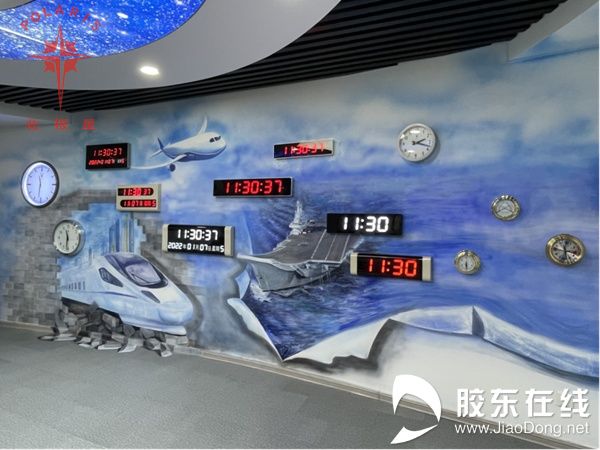
Jiaodong Online, February 4 (Reporter Xu Jiawei) Tonight, the opening ceremony of the 24th Winter Olympic Games was held at the National Stadium. Nearly 3,000 athletes from about 90 countries and regions around the world will go to the ice and snow together to present a wonderful Winter Olympics to hundreds of millions of viewers around the world. Behind this ice and snow event, the "domestic technology" included in the construction of major Winter Olympic venues has become a hot topic of attention and discussion among netizens. It is worth being proud of that "Yantai wisdom" also shines in this!
The reporter learned that the Polaris intelligent clock system developed by Yantai Clock and Watch Research Institute Co., Ltd. provides key technical support for timing and timekeeping in the key venues of the Beijing Winter Olympics - the National Alpine Skiing Center, the National Bobsleigh and Luge Center, the Ice Hockey Stadium, and the Beijing-Zhangjiakou High-speed Railway, an important support project for the Winter Olympics. In the past, the Winter Olympics were almost "monopolized" by watch companies in European and American countries. It is the first time that a Chinese watch supplier has entered the Winter Olympics.
Polaris smart clock system provides timing for Beijing Winter Olympics
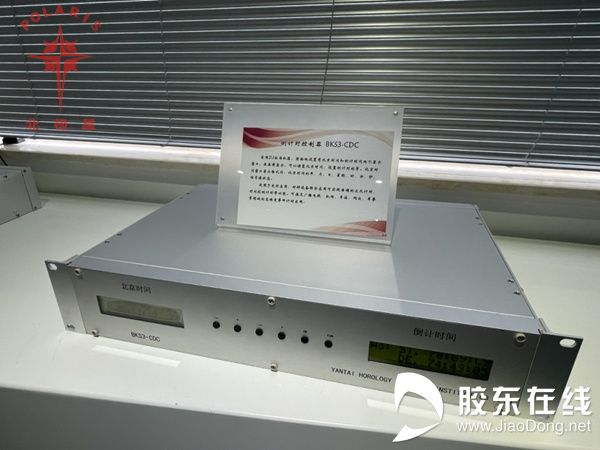
The main function of the Polaris smart clock system is to provide a unified standard time for event timing and scoring, video recording, security, office work, and related intelligent equipment. More than 500 Polaris clocks have been installed in the National Alpine Skiing Center, the National Bobsleigh and Luge Center, and the Ice Hockey Stadium. All participants and trainees can see when they look up is the unified standard "Polaris" time from Yantai. Yang Jiaye, chief technical engineer of Yantai Clock and Watch Research Institute Co., Ltd., introduced that the clock system can ensure the normal operation of the clock in the face of changes in indoor and outdoor temperature differences in the Winter Olympics venues and any emergencies. "The application of technical algorithms such as redundant hot standby and step-by-step double verification of the entire system can effectively deal with errors and failures caused by various factors."
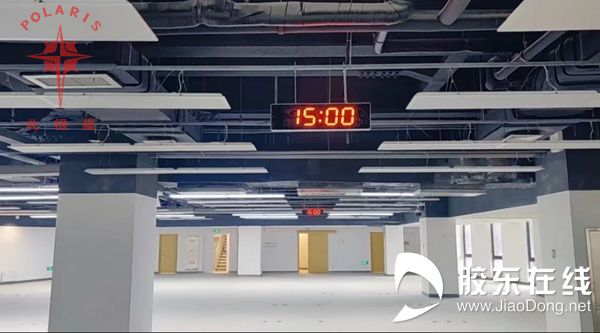
He added that in order to ensure the stable operation of the equipment under various conditions, all Polaris clocks have passed the high and low temperature aging test of -30℃-70℃. In addition, the system uses a highly stable tamed constant temperature crystal oscillator, and the clock terminal uses a temperature compensated crystal oscillator. The constant temperature tank or compensation capacitor array of the crystal is used to effectively deal with the influence of temperature on the clock accuracy. All clock equipment is equipped with a high-precision clock chip, so that the system has an accurate time regardless of whether the terminal is offline or online.
Not only is the technology advanced, but in response to different application scenarios of the Winter Olympics, Yantai Clock and Watch Research Institute Co., Ltd. has also made some humanized designs and considerations for the system accordingly. Yang Jiaye gave an example, for example, the clock terminal can display information such as the countdown of the game time according to the settings; the clock terminal can also be opened and closed at a fixed time. On the one hand, the clock can be turned off when not in use to save energy and reduce emissions, and on the other hand, the clock terminal can be prevented from affecting the athletes when they are resting. "The clock uses a high-precision ambient light sensor that can sense information such as ambient light brightness in real time and adjust the current of the display circuit in real time. In layman's terms, the brighter the ambient light, the brighter the clock will be. The darker the environment, the darker the clock, making the brightness of the clock terminal softer and more comfortable." Yang Jiaye explained.
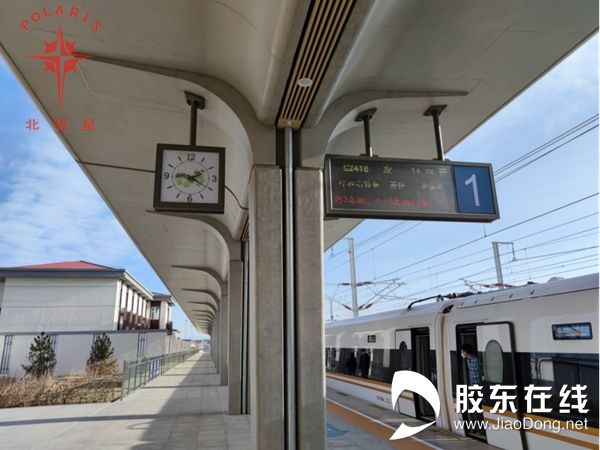
The Polaris smart clock system is not only used in the Winter Olympics venues, but also in the Beijing-Zhangjiakou High-speed Railway, a key transportation support project for the Winter Olympics. It is understood that the Beijing-Zhangjiakou High-speed Railway was opened on December 30, 2019. The Polaris clock system used in the project provides time 24 hours a day, and also makes corresponding appearance designs based on the humanistic and geographical characteristics of each station, achieving "one station, one scene". Nowadays, when you step into the Beijing-Zhangjiakou High-speed Railway Taizicheng Station, Beijing North Station, Badaling Great Wall Station, Zhangjiakou Station and other high-speed railway stations, you can see the Polaris clock system that is highly integrated with "one station, one scene" and "100 Years of Beijing-Zhangjiakou" everywhere.
Help Chinese creation and promote national brands to the world
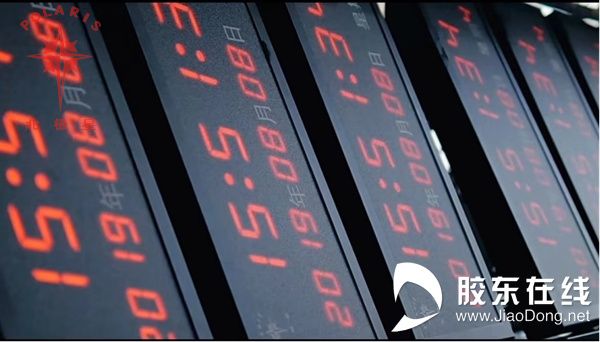
Yantai Watch Research Institute Co., Ltd., located at No. A28, Liandong U Valley, No. 36, Jingsan Road, Yantai High-tech Zone, was founded in 1975. It is the technology development center of Yantai Polaris State-owned Holding Co., Ltd., my country's first special technical clock research and development base, a nationally recognized high-tech enterprise, a technology-based small and medium-sized enterprise, and the Yantai Ethernet Ship Time Control System Engineering Research Center.
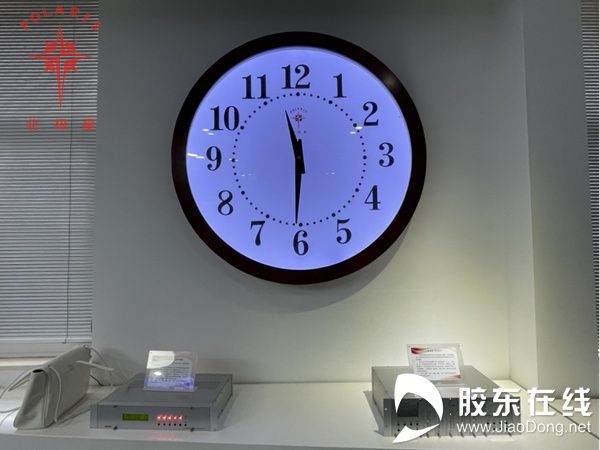
As we all know, Polaris was founded in 1915. It is a time-honored Chinese brand and a famous Chinese brand. It has a history of a hundred years, rich heritage and many honors. The long history, well-known brand, and pioneering spirit have made the institute a shining star in the Polaris technology sector and an excellent representative of the integration of traditional brands into modern technology. Yantai Clock and Watch Research Institute Co., Ltd. has strong independent research and development capabilities and achievement transformation capabilities. In the process of development, it has always focused on the cultivation of independent innovation and has been committed to the innovation and breakthrough of cutting-edge time technology. The company has excellent technology, market, manufacturing, and management teams, and a complete research and development and production system. The time synchronization system (large area time system) is the first automatic control time system successfully developed by the institute in China in 1996. It is the first in China and has replaced imports.
In addition to being used in the Beijing Winter Olympics venues, the Polaris smart clock system has also been used in national key projects such as the Exhibition Hall of the History of the Communist Party of China and the National Stadium; venues, airports, buildings and other projects; participated in and witnessed the rapid development of China's high-speed rail construction, becoming the largest supplier of high-speed rail clock systems; along with China's rapidly developing urban rail transit industry, the Polaris clock system is used in many domestic and foreign rail transit projects, and the market share of Beijing Metro, which ranks first in the world in terms of operating mileage, ranks first in the industry, contributing to the rapid development of China's rail transit industry.
In addition, the company actively integrates into the construction of the "Belt and Road Initiative", and the Polaris clock system continues to shine in Asia and Africa. It is used in subways, railways, venues and other projects in Iran, Nigeria, Ethiopia, Equatorial Guinea, Congo, Egypt, Vietnam and other countries along the Belt and Road Initiative, and its engineering performance ranks first in the industry. Over the years, the key core technologies of time science and technology and high-tech intelligent precision timing products mastered by Yantai Clock and Watch Research Institute Co., Ltd. have been dedicated to serving many key projects at home and abroad, and have contributed to the scientific and technological progress in the field of Chinese clocks and watches and the development of the national economy.






 鲁公网安备 37060202000523号
鲁公网安备 37060202000523号 